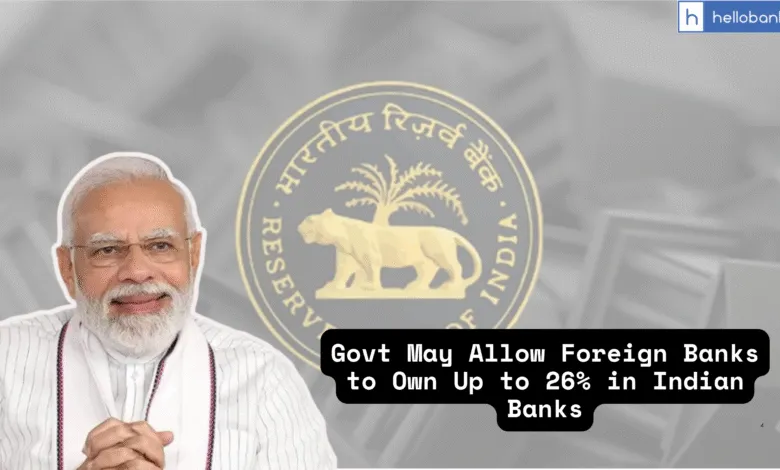Govt May Allow Foreign Banks to Own Up to 26% in Indian Banks, Says RBI Governor Sanjay Malhotra

There is a big news related to the banking industry in India. The Government of India may allow Foreign Banks to own upto 26% in Indian Banks. The Reserve Bank of India (RBI) is open to allowing foreign banks to own up to 26% stake in Indian banks, as long as they follow the rules laid out in the country’s Foreign Direct Investment (FDI) policy, said RBI Governor Sanjay Malhotra in an interview with CNBC-TV18 on Tuesday.
No Proposal Yet, But Policy Allows It
Governor Malhotra clarified that currently, no foreign bank has approached the RBI with a proposal to buy 26% in an Indian bank. However, the RBI is ready to consider such proposals if they come.
He explained that under the FDI policy, foreign banks are already allowed to invest up to 74% in private Indian banks. Out of this, up to 49% can be done automatically without special government approval. But if a single foreign bank wants to buy more than 15%, they usually need special permission from the RBI.
He added that while foreign banks can own up to 26% stake, their voting rights — the ability to influence decision-making in the bank — are capped at 26%, as per the Banking Regulation Act. This helps ensure no foreign entity has too much control.
Foreign Interest in Indian Banks Growing
Malhotra’s comments come at a time when foreign banks like SMBC (Sumitomo Mitsui Banking Corporation) are showing interest in Indian banks like Yes Bank, and NBD (Emirates NBD) is reportedly interested in RBL Bank.
So far, RBI has allowed higher foreign ownership only in special situations, such as when DBS Bank of Singapore took over the troubled Lakshmi Vilas Bank. That was an emergency takeover and not the standard route.
Corporate Investment in Banks Also Under Review
Malhotra also spoke about Indian corporate groups wanting to invest in banks. He acknowledged that some business houses have enough money to support the banking sector, which needs regular capital (money) to grow. However, he also warned that if a business group owns a bank and runs other businesses at the same time, it can lead to a conflict of interest. For example, the bank might give unfair loans to the group’s own companies.
This concern about mixing banking with other businesses remains important even today, he said.
RBI May Bring Policy Clarity
Currently, rules around foreign ownership are handled on a case-by-case basis, which means RBI reviews each request separately. But Governor Malhotra hinted that the RBI may now look at revising the overall policy to make things clearer and more consistent.
He admitted there may be some confusion or lack of clarity in the current rules and said, “These are matters of detail which we will work out.”
More details will be released soon.
